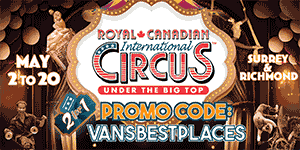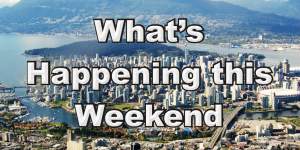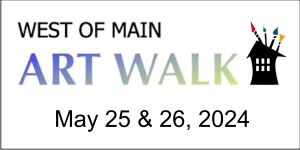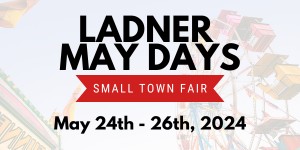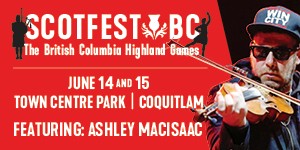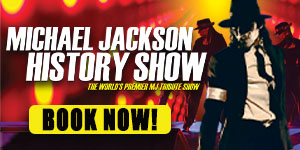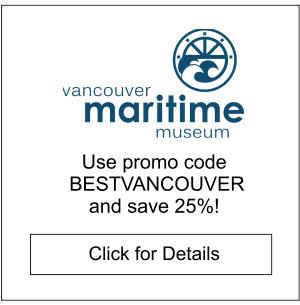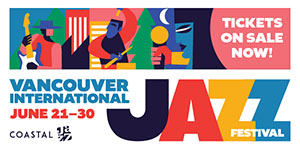
Former American President Barack Obama spoke to a packed Vancouver Board of Trade audience at the Vancouver Convention Centre on Tuesday, March 5, 2019.
He talked about the high points and low points of his administration, life after being President, concerns for the world, and hopes for the future.
A Conversation with President Barack Obama
Barack Obama is on a speaking tour. He was in Winnipeg on March 4th. He was in both Calgary and then Vancouver on March 5th.
The “Conversation with President Barack Obama” in Vancouver was a much anticipated event, and it lived up to expectations.
Tickets were available to members of the Vancouver Board of Trade and started at over $400 per person. Over 3000 people attended the sold-out event.
The event began with a surprise performance by Vancouver-based singer Sarah McLachlan who sang The World’s on Fire, Possession, I Will Remember You and Angel. Accompanying her for a couple of the songs were members of the Sarah McLachlan School of Music. After the performance which was beautiful, moderator Iain Black and Barack Obama took the stage.
What was Obama’s Talk About?
The “Conversation with President Barack Obama” began with the guest speaker complimenting Vancouver, saying “You have a very nice city here” and “That’s what I’m told, that February in Vancouver is always sunny.” After that first of many bits of humour, the moderator, Vancouver Board of Trade CEO Iain Black, asked Obama a series of questions.
The first question was what life was like the day after Obama finished his presidency. Other questions were about Obama’s low points and high points of his time in office. The answer to the first was coming into office as the world economy was crashing down. The answer to the latter was the passing of his Health Care Act, which he said was a first step and established a baseline for the future.
During his conversation with the moderator Obama talked about globalization and how it’s creating huge wealth for some, but also displacing entire communities and unsettling the world. He touched on the topic of artificial intelligence, and its implications, and how unprepared the world and governments are for it. He also talked about his wife’s book, the #MeToo movement and issues facing women.
Throughout his talk, Obama came across as very human, genuine, personable and authentic. He was passionate, full of humour, thoughtful and thought-provoking. Regardless of your politics, he also came across as a person of integrity, vast experience and knowledge about the world. If his goal was to appear like a pretty nice, down-to-earth and sincere guy, he succeeded.
Other comments, quotes and takeaways from the event are listed below. (Note: Recording devices were not permitted at the event. As a result, quotes given are accurate to the best of our ability.)
- Barack and his wife Michelle didn’t become national figures until they were into their 40’s. They lived “kind of a normal life until then” which allowed them and their children to stay grounded. He doesn’t envy people who become famous at a much younger age.
- When returning to life after being President he had to learn again how to use a coffee maker. “But let’s not pretend I was out there fixing things. … I can screw screws and hammer nails, … but I know my strengths,” he admitted.
- As President, “the nature of the problems that arrive at your desk is that they are problems that nobody else can solve. Otherwise they would already have been solved.”
- As President, “you are dealing with probabilities. You know you’ll make mistakes.” As an example, he said he knew that the mission to take out Osama bin Laden had a 50-50 chance of success. He knew that there was a 50% chance that it would be a great success, but also a 50% chance they’d be taking out the wrong person which would have had terrible consequences for both his presidency and the country.
- He slept well at night as President knowing that, although he made mistakes, he always made the best decisions he could have made given the circumstances, what he knew and the information available (which he always made sure there was a lot, and from a diverse group of advisors).
- Obama said that he established early on in his administration that the people making decisions would be people with integrity. “For all the mistakes we made we made them with integrity.”
- History-defining moments for the US over the past couple of decades included September 9/11, which then led to the invasion of Iraq, which then in turn had its own profound effects. Obama said he also saw John McCain’s choice of Sarah Palin as his vice-presidential running mate as a key turning point in US history. It was the moment, Obama believed, when the Republican Party changed and mainstream Republicans lost (or started to lose) control of their party.
- Obama said he “did not [initially] appreciate the degree the United States, in partnership with its allies, like Canada, underwrite the world order” with its resources, military and bureaucracy.
- Canadians and Americans are like cousins. “We share culture, values, [and] assumptions about how the world should work, … It’s colder in Canada though, and [Canada’s] hockey is generally a little better. … So the point is, we should be friends and allies.”
- He’s concerned about what’s happening in the Western democratic world (defined as countries that believe in certain rights, the rule of law, principles of non-discrimination, etc.), He said that, as President of the United States, he couldn’t stand up for issues, like those affecting women and women’s rights, if countries like Canada didn’t stand up and support him (and vice versa).
- “The new economy is an extraordinary engine of wealth, … but outside extraordinary metropolitan centres … (like Vancouver and San Francisco) … there’s a lot of people being left behind.” Obama said he “worries about a political order where there is such a vast gap. … You start getting extreme political movements as a reaction.”
- Changes that are taking place currently (i.e., regarding the new world economy) are only the beginning.
- “In some ways Canada is already ahead of the game,” compared to the United States, because of our social programs.
- Climate change is another of Obama’s big concerns, and in particular with respect to the energy industry. “I’m an old-fashioned kind of guy” he said. “I believe in facts and the facts are that the planet is getting warmer.” He joked a bit too (as he did throughout his talk) when he admitted that “some in Chicago and Canada might appreciate it if things warmed up a bit.”
- If you think we have problems with mass migration, pandemics … and natural disasters now, think about what it’s going to be like. Climate change and its implications will make life difficult for our grandchildren.
- As oil producers, Canada has to join with the United States in a leadership role. He acknowledged that you can’t ignore the importance of jobs and the economy, but that decisions need to be made and leadership is required. “It’s easy for the Danes to lead in climate change,” he joked. “Shoot, they don’t have any oil.”
- Obama joked about Canada and Prime Minister Trudeau’s obsession with timber. He acknowledged that timber is an important issue, at least for Canada. But when Obama had the war with Syria, nuclear proliferation with North Korea and a crumbling world economy to deal with, and then when the two leaders met in person, and at the top of Trudeau’s agenda was timber, Obama was like “Dude, I got Syria!”
- Obama admitted that he was cocky in his youth, but that Michelle liked that. He also admitted that his wife was correct when she wrote in her new book that he, Barack, has no regard for punctuality.
- Obama has lots of causes that he cares about and wants to help in his post-presidency time. Top among them are climate change, poverty and issues facing women and girls.
- “For most problems we face we already have solutions. … So the problem isn’t that we don’t have solutions. … The problem is the human issue.”
- On the topic of leadership …
- “Leadership is the ability to organize a team to act in concert to achieve goals.”
- “The best leaders typically are really good at empowering the people around them.”
- “I love having people around me that are smarter than me and know things I don’t.”
- Unless you are Shakespeare or a few other great persons in history, there are very few truly great things that you can accomplish on your own.
- “When I’m travelling around the world, what makes me optimistic is the extreme talent, innovative thinking, … and embrace of diversity and tolerance that you can see in young people in every country. We have to invest in that talent.”
- “[Young people] mistrust a lot of the existing institutions. We have to get out of the way and let them fix things.”
Obama ended his talk with a message for young people. He said that if you had to be from any time in human history, and you could choose your time, “you’d have to choose now because the world has never been wealthier, more educated, healthier, less violent and more tolerant. …” Despite all the doom and gloom about climate change and international conflicts, the present is arguably the moment in history when humankind has been the most well off.







